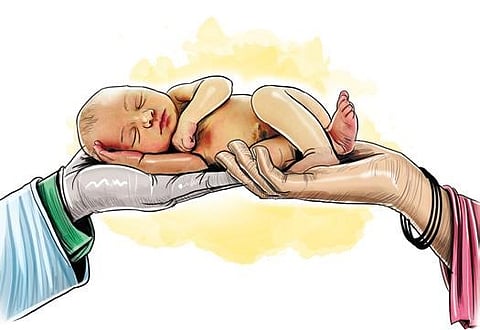

NEW DELHI: It is not appropriate for an administrative authority, instead of a judicial body, to issue adoption orders, a Parliamentary panel has noted. The Standing Committee’s views are at variance with the Juvenile Justice Amendment Act, 2021, which was amended to empower district magistrates (DMs) to issue adoption orders. Before this, the power to issue adoption orders was vested in the judiciary.
It was in July last year that the Parliament passed the Juvenile Justice (Care and Protection of Children) Amendment Bill, 2021. The amendment also entrusts the DM to ensure that childcare institutions comply with the provisions of the Act.
However, the Standing Committee, which tabled its recommendations recently on ‘Guardianship and Adoption Laws’ felt that judges have competence and experience to determine whether adoption is in the best interest of the child.
The panel, headed by BJP leader Sushil Kumar Modi, said since the new system is yet to be tried and tested, the Committee recommends that training should be imparted to DMs, ADMs and divisional commissioners in this regard. It also told the Ministry of Women and Child Development to review the functioning of the new system and present a report to the Committee.
The Standing Committee on Personnel, Public Grievances and Law and Justice, also noted that while deciding on adoption, courts ensure that necessary procedures have been complied with. It has the power to conduct an inquiry of the child and adoptive parents. The Union government’s move to hand over the responsibility to DMs has invited criticism from groups working for children’s welfare.
“It’s concerning the manner in which the amendment was pushed through to hand over power from the judiciary to the executive. DMs are not equipped enough to decide whether the child should be given for adoption,” she said.
Senior lawyer Neela Gokhale said under Juvenile Justice Act too, adoption cases are heard by either a district court, family court or a city civil court. “If there is a breakdown in the family where the child has been adopted, the child has to be rehabilitated. These processes are enforced by the court,” Gokhale said, adding that the government should increase the number of family courts.
Recommendations of Parliamentary panel